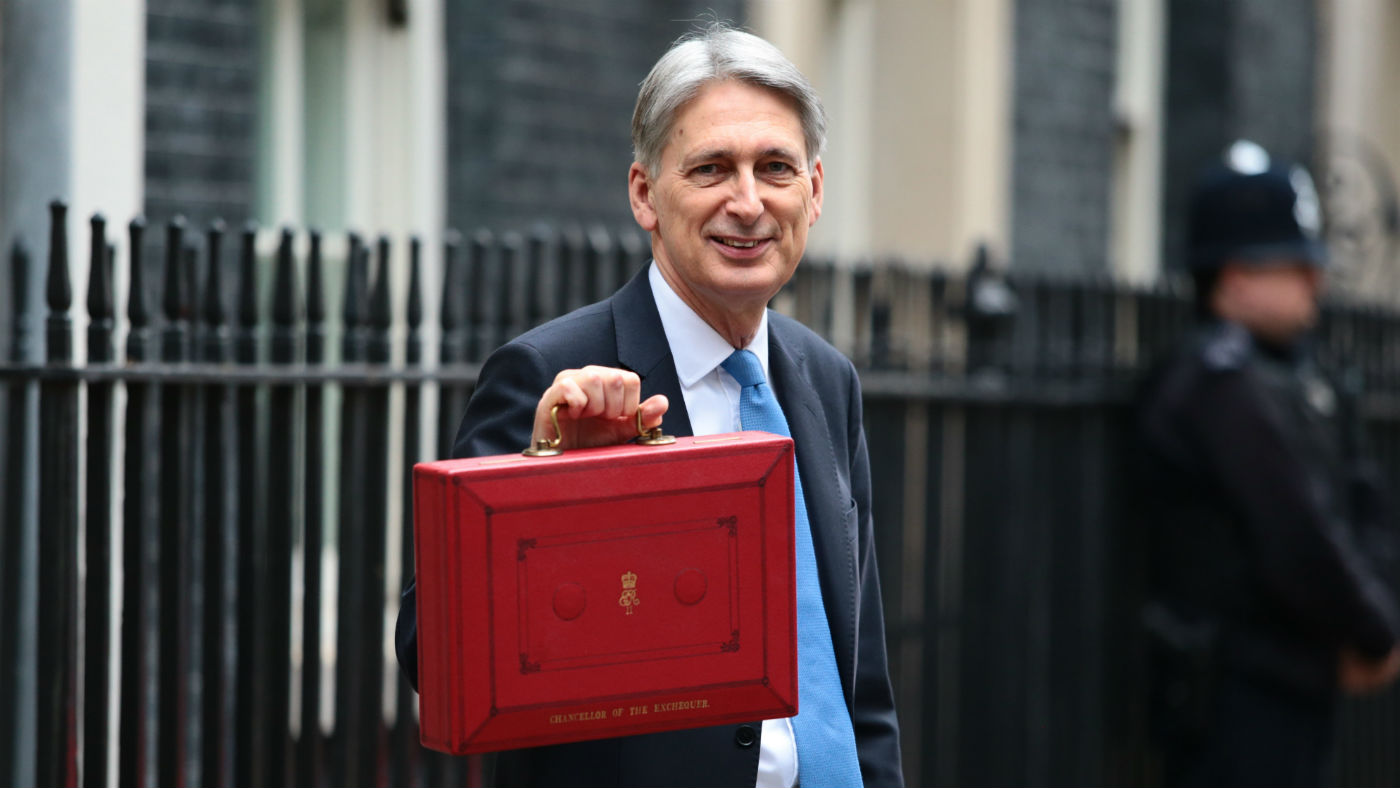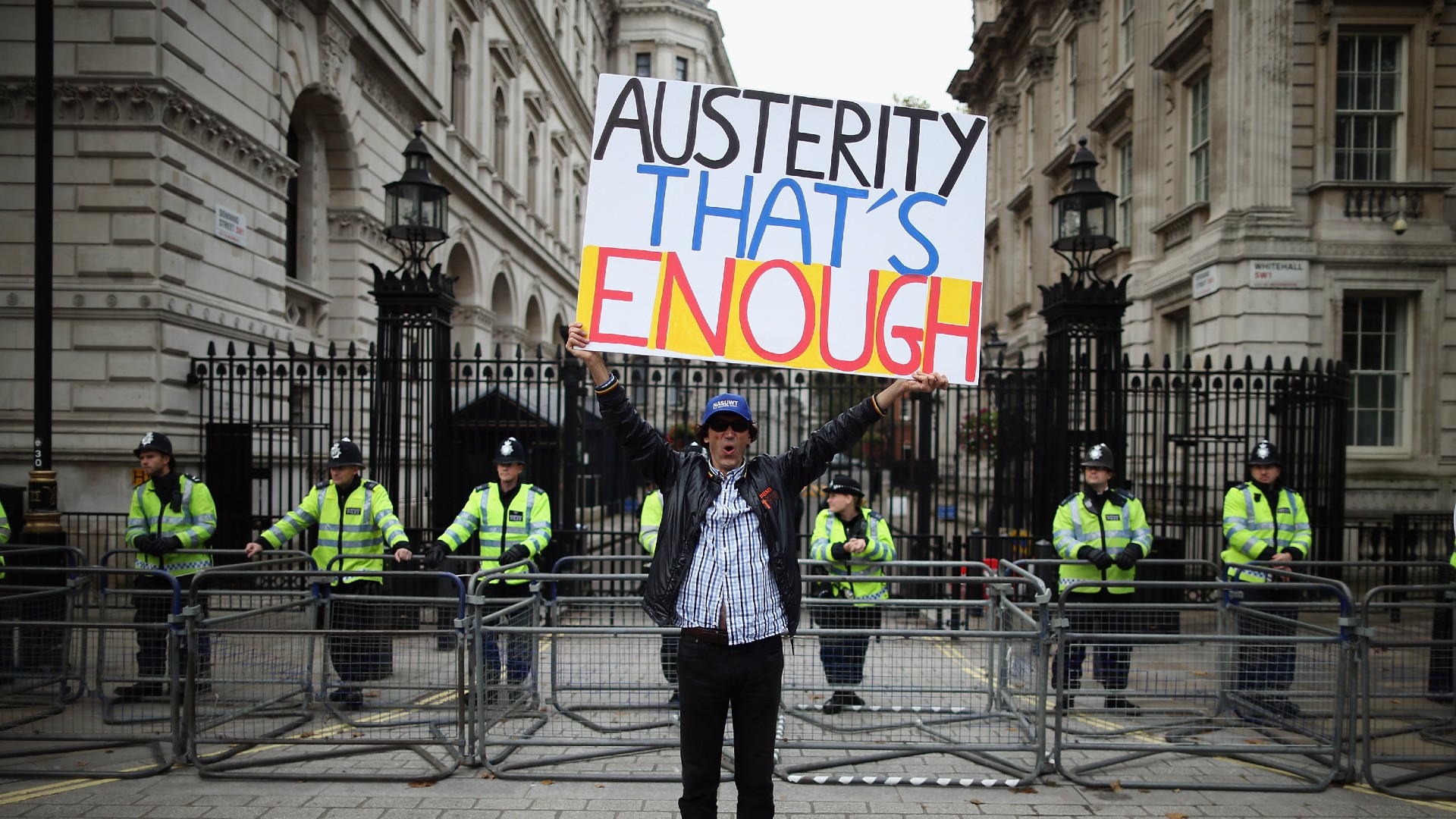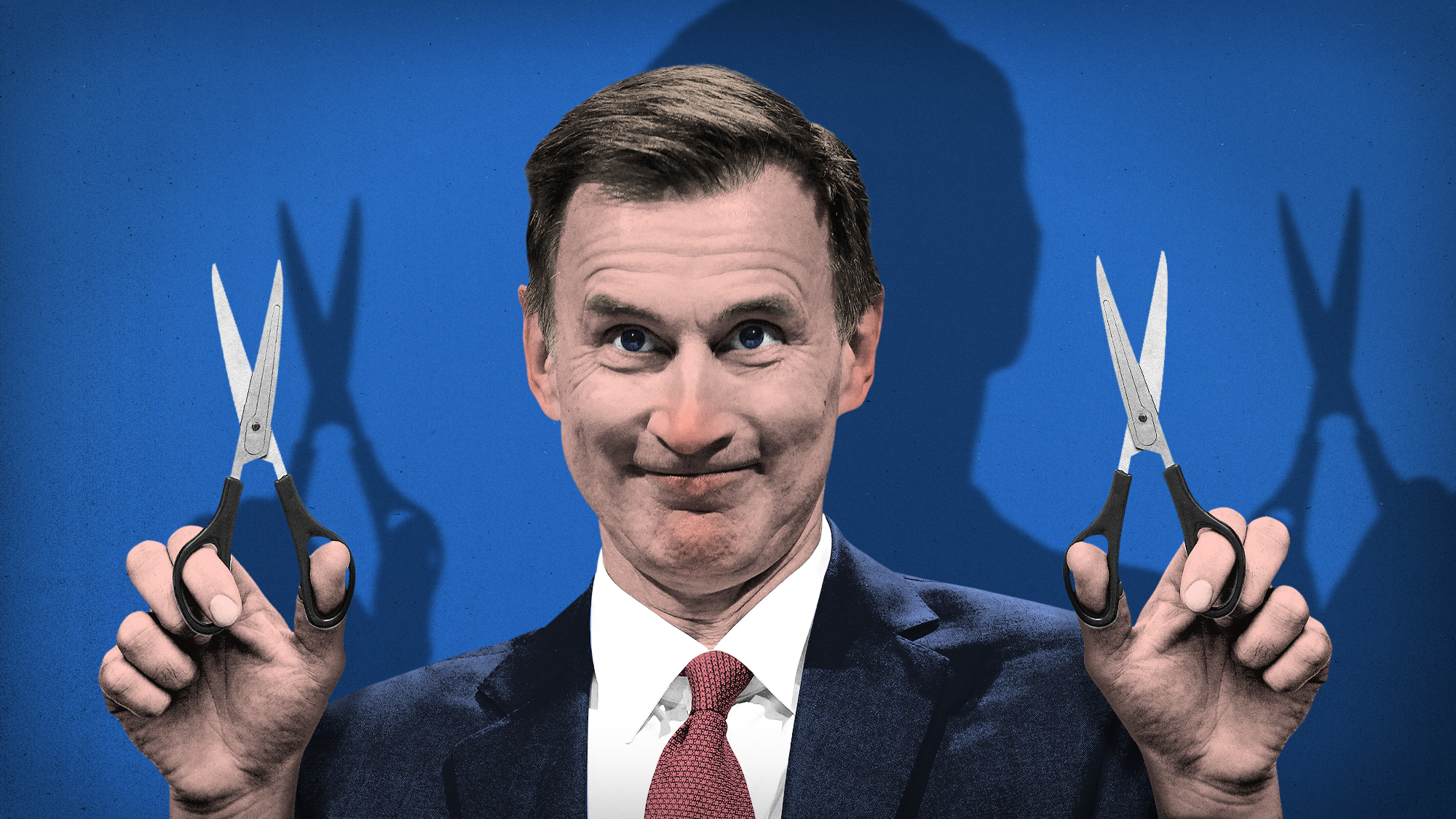Surprise surplus gives Hammond wiggle room to splash the cash
Borrowing down and tax revenue up as figures reveal budget deficit lower than expected

A free daily email with the biggest news stories of the day – and the best features from TheWeek.com
You are now subscribed
Your newsletter sign-up was successful
Philip Hammond will have more money to spend on public services at this Autumn’s budget, after official figures revealed the government registered its biggest budget surplus for July in 18 years.
The Office for National Statistics reports that tax revenues exceeded spending by £2bn last month, better than the £1bn surplus City analysts had expected. Meanwhile total state borrowing for the 2018-19 fiscal year (four months in) is £12.8bn, down from £21.3bn at the same stage in 2017-18.
The better than expected borrowing leaves the UK on course to undershoot the Office for Budget Responsibility’s most recent full-year borrowing projection of £37.1bn “and will likely increase political pressure on the chancellor, Philip Hammond, to increase spending on overstretched public services in his Budget this autumn”, says The Independent.
The Week
Escape your echo chamber. Get the facts behind the news, plus analysis from multiple perspectives.

Sign up for The Week's Free Newsletters
From our morning news briefing to a weekly Good News Newsletter, get the best of The Week delivered directly to your inbox.
From our morning news briefing to a weekly Good News Newsletter, get the best of The Week delivered directly to your inbox.
“Faced with pressure from his own MPs to boost his party’s opinion poll standing and the political imperative to show that the economy has prospered after leaving the EU in March 2019, we expect the chancellor to use this scope to borrow more,” says Samuel Tombs of Pantheon.
Ultra-low interest rates have helped the Treasury cut spending on servicing the national debt, while higher employment has helped the public coffers, prompting the Daily Telegraph to declare “the battle against the budget deficit is almost over”.
But while the chancellor may have a little wiggle room to splash a bit of extra cash, he is likely to err on the side of caution, with the Treasury “trying to keep a lid on expectations ahead of the budget in November”, says the BBC’s economics editor Kamal Ahmed.
“Plenty of spending pledges have already been made,” he says, listing Theresa May’s promise for substantial new funding for the NHS and higher public sector pay settlements as reasons to suggest taxes may have to rise.
A free daily email with the biggest news stories of the day – and the best features from TheWeek.com
As to whether this could prove the final nail in the coffin of austerity, BBC economics correspondent Andy Verity says: “Those who want to keep austerity will point out that the debt - all the accumulated deficits of the past - is still very high by the standards of recent decades. And it's climbing. However, their opponents might retort, it's shrinking as a proportion of the economy. Other things being equal, that means it should be getting easier, not harder to manage.”
-
 Political cartoons for February 15
Political cartoons for February 15Cartoons Sunday's political cartoons include political ventriloquism, Europe in the middle, and more
-
 The broken water companies failing England and Wales
The broken water companies failing England and WalesExplainer With rising bills, deteriorating river health and a lack of investment, regulators face an uphill battle to stabilise the industry
-
 A thrilling foodie city in northern Japan
A thrilling foodie city in northern JapanThe Week Recommends The food scene here is ‘unspoilt’ and ‘fun’
-
 Is the UK headed for recession?
Is the UK headed for recession?Today’s Big Question Sluggish growth and rising unemployment are ringing alarm bells for economists
-
 Should Labour break manifesto pledge and raise taxes?
Should Labour break manifesto pledge and raise taxes?Today's Big Question There are ‘powerful’ fiscal arguments for an income tax rise but it could mean ‘game over’ for the government
-
 French finances: what’s behind country’s debt problem?
French finances: what’s behind country’s debt problem?The Explainer Political paralysis has led to higher borrowing costs and blocked urgent deficit-reducing reforms to social protection
-
 Will Rachel Reeves have to raise taxes again?
Will Rachel Reeves have to raise taxes again?Today's Big Question Rising gilt yields and higher debt interest sound warning that Chancellor may miss her Budget borrowing targets
-
 Securonomics: what is Rachel Reeves' economic plan and will it work?
Securonomics: what is Rachel Reeves' economic plan and will it work?The Explainer Focus on economic security and the resilience of industry in an uncertain world is 'key to growth', say Labour
-
 New austerity: can public services take any more cuts?
New austerity: can public services take any more cuts?Today's Big Question Some government departments already 'in last chance saloon', say unions, as Conservative tax-cutting plans 'hang in the balance'
-
 Five key takeaways from Jeremy Hunt's Autumn Statement
Five key takeaways from Jeremy Hunt's Autumn StatementThe Explainer Benefits rise with higher inflation figure, pension triple lock maintained and National Insurance cut
-
 Would tax cuts benefit the UK economy?
Would tax cuts benefit the UK economy?Today's Big Question More money in people's pockets may help the Tories politically, but could harm efforts to keep inflation falling